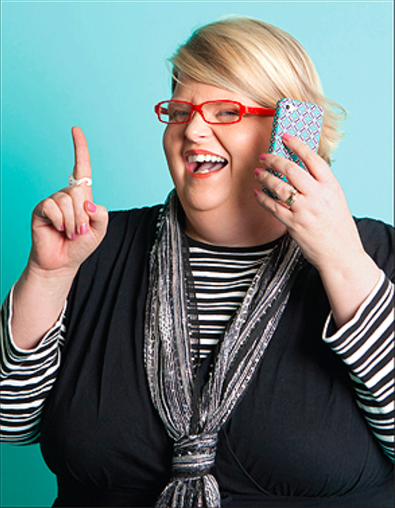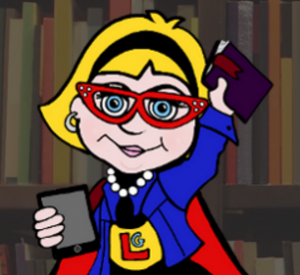LaGarde is the Lead School Library Media Coordinator/Digital Teaching and Learning Specialist for New Hanover County Schools in Wilmington, NC. In her alternative life as a super blogger she “proves you don’t have to be a superhero to be a teacher librarian, but having a cape sure helps.”
The Adventures of Library Girl blog recently called on adults to model “reading lives of their own” in order to encourage the young readers around them to create and grow their own. “The recipe for growing readers really isn’t that complicated,” LaGarde and Nesloney assert. “First, give students access to many, many books. Then allow them to select the titles that interest them and with which they will experience great success. And then, let them read. Boom!”
When Adults Don’t Read, Kids Lose provides a series of suggestions to jumpstart adults and students alike. Please follow the article link for more details than appear below and to explore the Adventures of Library Girl website.
- Increase your own access to books
- Schedule time for reading
- Harness the power of social media to create a reading community:
- Forget your reading level
- Move on from those books that you start reading but aren’t enjoying
- Always have a book with you
- Let your reading geek flag fly
- Talk about what you’re reading with others
- Advertise the books you’re currently reading
- Understand that listening to an audio book is also reading
- Ask others for advice on what books to read
- Finally, remember that all of these tips are good for students too!
The bottom line is this: According to LeGarde and Nesloney, “your students need and deserve for you to be their independent reading champion. Reading changes lives. Not only is reading the fundamental skill that underpins all learning, but it’s also a crucial component in the development in a curious mind, a gentle spirit and a loving and empathetic heart. And our world desperately needs more of those things. It only takes finding that one book to help a child understand, for the first time, that it’s okay to be who they are. Or conversely, that it’s also okay to be completely different. Books open worlds of hope and possibility. When a child (or adult) is immersed in characters and stories, they are immersed in everything that makes up the vast human experience. And it is through that immersion that we become better at understanding both ourselves and others.”
Submitted by Kris Adams Wendt.


